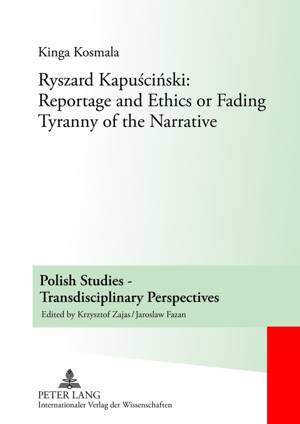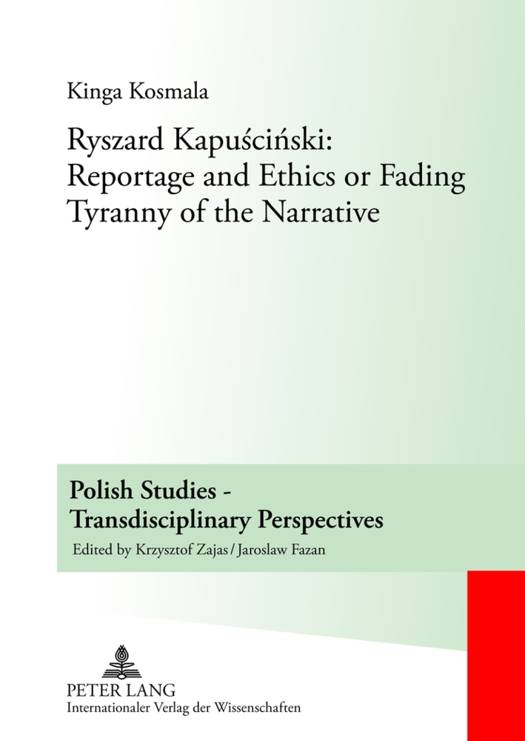
- Afhalen na 1 uur in een winkel met voorraad
- Gratis thuislevering in België vanaf € 30
- Ruim aanbod met 7 miljoen producten
- Afhalen na 1 uur in een winkel met voorraad
- Gratis thuislevering in België vanaf € 30
- Ruim aanbod met 7 miljoen producten
Zoeken
Ryszard Kapuściński: Reportage and Ethics or Fading Tyranny of the Narrative
Kinga Kosmala
€ 32,45
+ 64 punten
Omschrijving
Ryszard Kapuściński was a direct witness to the creation and a collapse of numerous independent African states, the guerilla movements in South America, the military combat in Honduras and El Salvador, the coup in Angola, the 1974 revolution in Ethiopia, the anti-Shad revolt in Iran, the 1980 strike in the Gdańsk Shipyard, and the collapse of the Soviet empire in 1991, among others. This study examines Kapuściński's reportage books, products of the author's travels to distant lands, regarded by some as exempla of mastery in the nonfiction genre and by others as ethically questionable semi-fictional stories. Its intention is to look closely at the process of the aesthetic formation of his travel experiences into books and the ideological paradigm shaping his representation of the facts. In addition to that, the effects of authorial re-shaping of documentary material, the question of authenticity or fabrication thereof, and the epistemological responsibility of a reportage writer are also examined.
Specificaties
Betrokkenen
- Auteur(s):
- Uitgeverij:
Inhoud
- Aantal bladzijden:
- 136
- Taal:
- Engels
- Reeks:
- Reeksnummer:
- nr. 2
Eigenschappen
- Productcode (EAN):
- 9783631618486
- Verschijningsdatum:
- 19/07/2012
- Uitvoering:
- Hardcover
- Formaat:
- Genaaid
- Afmetingen:
- 148 mm x 210 mm
- Gewicht:
- 279 g

Alleen bij Standaard Boekhandel
+ 64 punten op je klantenkaart van Standaard Boekhandel
Beoordelingen
We publiceren alleen reviews die voldoen aan de voorwaarden voor reviews. Bekijk onze voorwaarden voor reviews.











